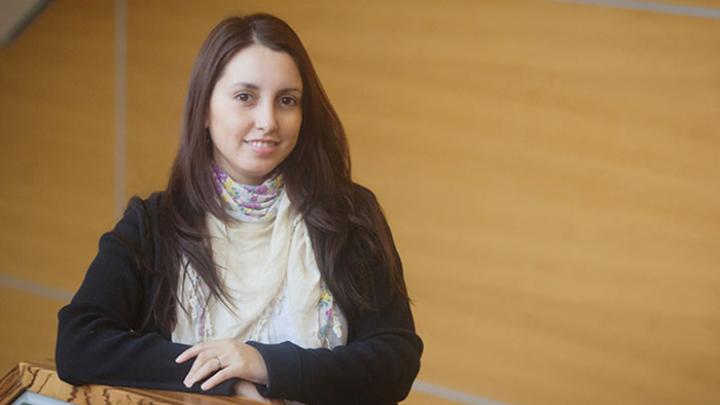
Affiliation: Master’s Student
Program: Human Development
Homeland: Santiago, Chile
The discussion in one of her classes was moving too fast in English for Paulina Aravena Bravo, a native of Santiago, Chile, to process in time to contribute her own thoughts. So afterward, she talked to the professor, who promptly made an appointment to meet with her and a group of other international students.
“He said he understood that we are not native speakers, and made some suggestions for how to deal with that,” recalls the master’s student in human development. For example, he encouraged the students to write down ideas to share even if the class has already shifted to another topic. “He said, ‘Don’t be afraid. We really want to know what you think.’ The professors here are very kind and make us feel like we’re not alone.”
For three years before coming to Warner, Aravena Bravo worked as a speech therapist, both one-on-one with students, many with developmental disabilities, and as a consultant of sorts to a group of special education teachers.
Knowing she wanted more education in her area of expertise, she chose Warner for its small class sizes and spot in the prestigious Academic Ranking of World Universities. Within days on campus she took advantage of events that gathered together international students, “which made me feel like I wasn’t the only one experiencing all these new things.” Her advisor, meanwhile, was instrumental in helping her decide which courses to take that would be most useful in her professional life after graduation.
After Warner, Aravena Bravo will move to Canada for two years to join her husband, Javier Mella, who is working on his PhD in finance there, before heading back to her homeland to “help make our country grow up and offer opportunities to those who need them.”
In the Santiago school where Aravena Bravo works, she plans to significantly revise a one-year program she co-created that uses fairy tales and other stories to help students with language disabilities. Before attending Warner, she’d gathered test results at the beginning and end of the program, but didn’t know how to analyze them and create hypotheses.
“We just did the program with our hearts and not our heads, without knowing anything about how to conduct the research,” she adds. “Now I have the knowledge and the tools to go back and do the program in a serious way.”